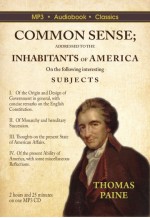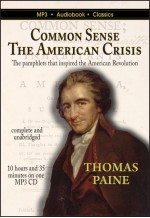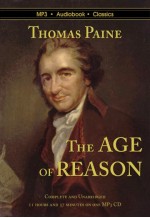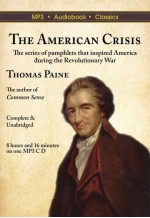Thomas Paine
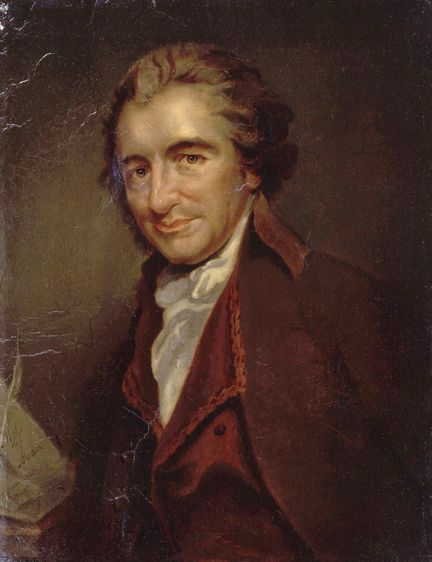 | Thomas Paine (February 9, 1737 – June 8, 1809) was a British-American philosopher, political theorist, activist, author, and revolutionary well known as the author of Common Sense and The American Crisis that inspired the American Revolution. Paine has been described as "a corsetmaker by trade, a journalist by profession, and a propagandist by inclination". Born in Thetford, Norfolk, he was apprenticed at age 13 to his father, a corsetmaker. After a brief term as a privateer he opened his own shop, but failed. He became an excise officer and eventually settled in Lewes, Sussex, marrying Elizabeth Ollive, operating her family’s tobacco shop, serving as an excise officer, and becoming involved in civic affairs. His first political work was an article appealing to the crown for better pay and working conditions for excise officers. Shortly thereafter he was fired, his shop failed, and he sold his possessions to avoid debtor’s prison. He separated from his wife and emigrated to the American colonies with the help of Benjamin Franklin in 1774. He became secretary of the Congressional Committee on Foreign Affairs and participated in a critical mission to France in 1781 that helped fund the revolution. He naturally became engrossed in the French Revolution and wrote The Rights of Man as a rebuttal to Edmund Burke that tore apart the monarchy and traditional society and sold nearly a million copies. Harassed by the English government for his views, in 1792 he published Rights of Man, Part the Second, Combining Principle and Practice, which also became a sensation and prompted an indictment for seditious libel. Chased out of the country, he was tried and convicted in absentia. France made him an honorary citizen and he was elected to the National Convention. His views conflicted with the radical Montagnards and Robespierre, however. He was excluded from the Convention, arrested and imprisoned, narrowly escaping execution during the Reign of Terror. |
Common Sense
Common Sense articulated the argument for seeking independence from Britain when the matter was the ..
$9.99
Common Sense and the American Crisis
This disc contains the two pamphlets Paine wrote that inspired the American Revolution: Common Sense..
$11.99
The Age of Reason
The Age of Reason; Being an Investigation of True and Fabulous Theology is a treatise by political p..
$11.99
The American Crisis
"These are the times that try men's souls: The summer soldier and the sunshine patriot will, in this..
$9.99

